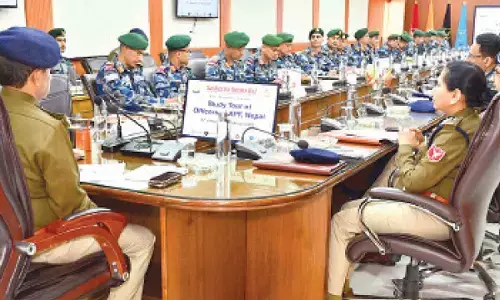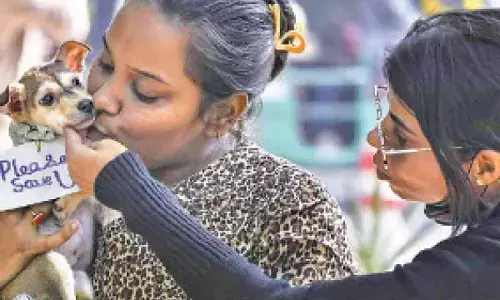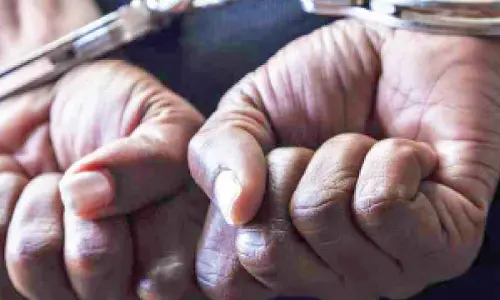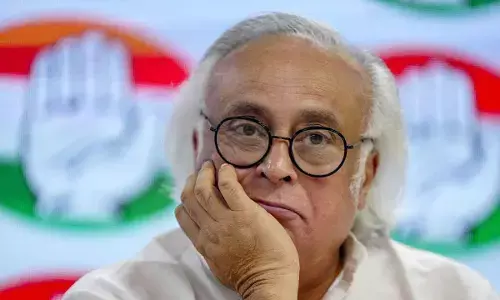Afghan burden gone, Pak ups the ante with select killings in J&K
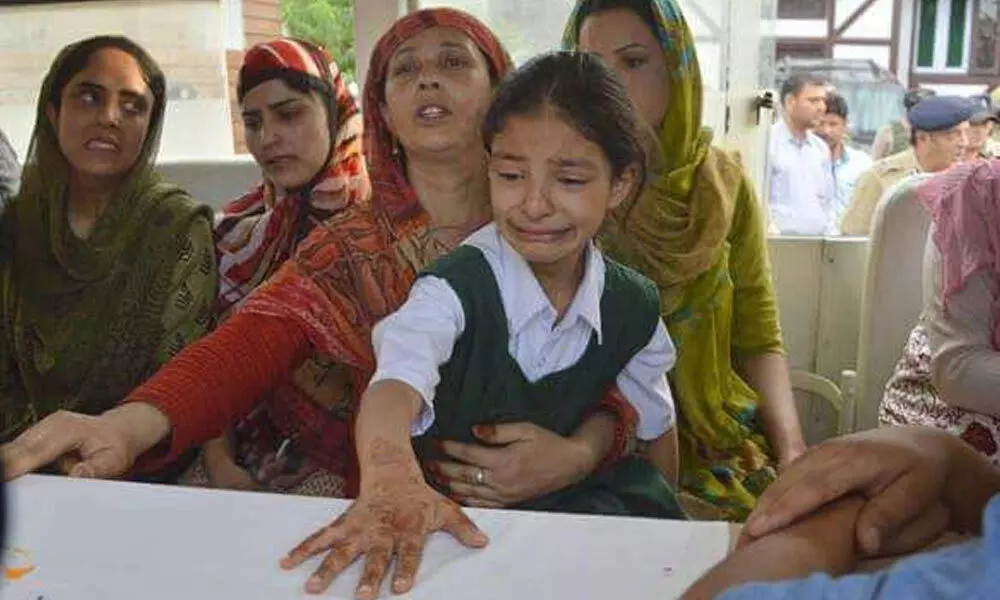
Afghan burden gone, Pak ups the ante with select killings in J&K
The Resistance Front (TRF) struck again in Kashmir, killing two more schoolteachers belonging to minority Sikh and Hindu communities in the region on Thursday.
The Resistance Front (TRF) struck again in Kashmir, killing two more schoolteachers belonging to minority Sikh and Hindu communities in the region on Thursday. Members of the TRF just walked into the school in Srinagar, checked the identity cards of the staff and separated the two and shot them with a pistol.
The killing of three including a Kashmiri Pandit preceded the chilling act. In fact, since last year, these targeted killings have been on the rise. Workers of BJP had become the TRF targets in 2020. Fida Hussain Yatoo, Umer Rashid Beigh, Umer Ramzan Hajam, Abdul Hamid Nagar, Sajad Ahmad Khanday and Arif Ahmad were all killed last year.
Going by the scaled-up anti-Indian operations in the light of the developments in Afghanistan and the emboldened Pakistani establishment with the withdrawal of the US and other NATO forces from the region, it could only be expected that such killings would continue for the time being challenging the Indian security agencies.
The Indian agencies are sure that the terror handlers from across the border devised the plan to float the TRF by using the cadres of the LeT and other militant groups. Only a new non-religious name was given to pass it off as an indigenous resistance front of Kashmir "fight against the atrocities of the Indian Army in held Kashmir." Pakistan sought to hit back at India for the abrogation of the Article 370 while avoiding any retaliation by the Financial Action Task Force (FATF) and hence a new non-religious name.
The group's first attack was in Srinagar and it was a grenade attack on CRPF men at Lal Chowk last year. The new group also killed five Indian Army soldiers including four Special Forces men (Paras) near the Line of Control at the Keran sector in Kupwara. Of course, the forces could neutralise 5 TRF men later. TRF has also been responsible for the killing of a Colonel and a Major rank officers along with three more security forces personnel at Handwara in Kupwara. The TRF remains smokescreen for sheltering not just LeT but also Hizbul Mujahideen and Jaish-e-Muhammad.This escalation was on the cards since the turn of events in Afghanistan with Pakistan somewhat relieved of the Afghan pressure. The changed scenario has already emboldened the non-State actors of Pakistan, some of whom have even raised the Taliban flag in Pakistan mosques and Madrassas of late. But the key player continues to be LeT. Formed in 1990 in the Kunar province of Afghanistan, the Lashkar-e-Taiba (also known as Jama'at-ud-Da'awa) is based in Muridke near Lahore in Pakistan and is headed by Hafiz Muhammad Saeed.
LeT entered Jammu and Kashmir in 1993 for the first time by injecting 12 Pakistani and Afghan mercenaries into it with the help of Islami Inqilabi Mahaz, a terrorist outfit then active in the Poonch district of J&K. LeT is not just a terrorist organisation but works towards enforcing jihad all over India for the restoration of Islamic rule in it. It has later widened to include Chechnya and other parts of Central Asia as its targets. Its stated purpose is to carry out a sustained struggle for the dominance of Islam in the entire world and considers India, Israel and US to be its prime enemies and has threatened to launch Fidayeen (suicide squad) attacks on American interests too.
The Lashkar-e-Taiba says it is the duty of every 'Momin' to protect and defend the interests of Muslims all over the world where Muslims are under the rule of non-Muslim in the democratic system as per the Wahabi school of thought. This terrorist, Hafiz Saeed, firmly believes in Jihad as the only honourable way out for even Pakistan to attain dignity and prosperity. The LeT, from its headquarters that runs a Madrassa, a hospital, a market, a large residential area for religious teachers and a fish farm and an agricultural tract also runs its web campaigns against saner societies. It publishes its views and opinion through its Website (http://www.jamatuddawa.org/), an Urdu monthly journal, Al-Dawa, which has a circulation of 80,000, and an Urdu weekly, Gazwa. It also publishes Voice of Islam, an English monthly, and Al-Rabat, a monthly in Arabic, Mujala-e-Tulba, an Urdu monthly for students, Jehad Times, an Urdu Weekly.
Intelligence gathered so far suggests that the operational structure of the terror outfit is thus: Hafiz Mohammed Saeed (Supreme Commander); Zia-Ur-Rehman Lakhvi alias Chachaji (Supreme Commander, Kashmir); A B Rahman-Ur-Dakhil (Deputy Supreme Commander); Abdullah Shehzad alias Abu Anas alias Shamas (Chief Operations Commander, Valley); Abdul Hassan alias MY (Central Division Commander); Kari Saif-Ul-Rahman (North Division Commander); Kari Saif-Ul-Islam (Deputy Commander); Masood alias Mahmood (Area Commander, Sopore); Hyder-e-Krar alias CI (Deputy Commander, Bandipora); Usman Bhai alias Saif-Ul-Islam (Deputy Commander, Lolab); Abdul Nawaz (Deputy Commander, Sogam); Abu Rafi (Deputy Divisional Commander, Baramulla); Abdul Nawaz (Deputy Commander, Handwara); Abu Museb alias Saifulla (Deputy Commander, Budgam).
LeT cadres are said to be mostly from Pakistan and Afghanistan and a sprinkling of militants from Sudan, Bahrain, Central Asia, Turkey and Libya. All said and done, it is the ISI which is the master brain behind LeT. It has not only funded but also trained them. How many cadres does it have in its sleeping cells in Kashmir and other parts of India? Well, there is no exact figure for the same. But, it is known that there are quite a few in India and they are on a recruitment spree. All these days there was a lull in the terror activity due to the sustained pressure mounted on them by the Indian forces. Still, most of the foreign mercenaries are operating in Kashmir. Though the Indian forces could handle jihadi forces with ease, it is these individual killings that become difficult as these are all isolated incidents. Anyone could walk into any house or shop and shoot someone with impunity. Unfortunately, there is no time for our political leaders to condemn these killings in Kashmir. All those who talk of 'excesses by the Indian Army' when it encounters terrorists prefer silence over terror killings.





